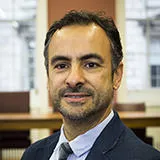Transnational Law
Key benefits
- The King’s LLM in Transnational Law equips students with the competences and skills to successfully master this new, complex and fast evolving world, exposing them to some of the most important regulatory arenas in transnational law and governance today.
- Transnational Law modules are taught by a selection of the world’s most renowned academics and practitioners in the field whose expertise and experience will help students to get ready for their practice with a deep knowledge of the law and with a critical understanding of what it means to envision law and legal practice on a global scale.
- The Transnational Law pathway fosters students’ analytical and critical thinking, as well as their collaborative and social skills, their teamwork, both locally and internationally, and their ability to effectively identify and negotiate the stakes of a case and represent the affected interests.
- The Transnational Law pathway enhances a rigorous, theoretically and historically informed legal education with a focus on real-world challenges in a global world – be that in refugee law, corporate governance or criminal law, among others.
To follow the Transnational Law pathway, you must first apply for the General LLM at King's. After enrolment you will select your pathway modules.
Find out more about the LLM at King'sPathway Director
Dr Octavio Ferraz leads the Transnational Law pathway. Dr Ferraz’s research interests are in the field of human rights and development, especially the role and impact of law and courts in poverty, equality and social justice. Before joining King’s he was a senior research officer to the UN special rapporteur for the right to health, Professor Paul Hunt, at the University of Essex, and then moved to Warwick Law School.
Chat to students and staff
Chat to current students and staff to find out about life at King's.



